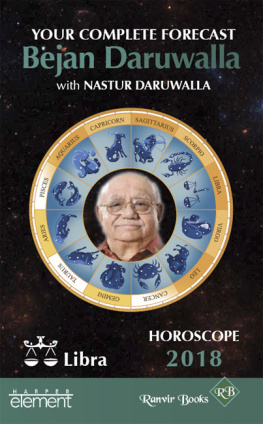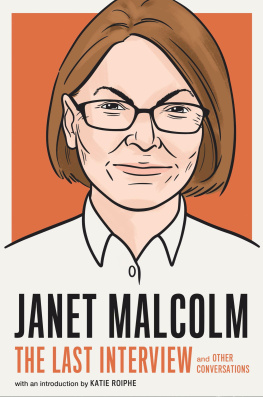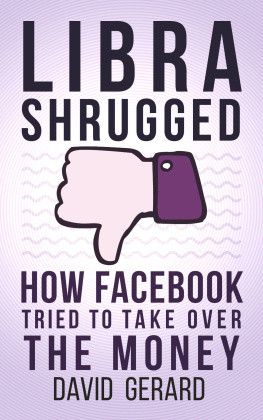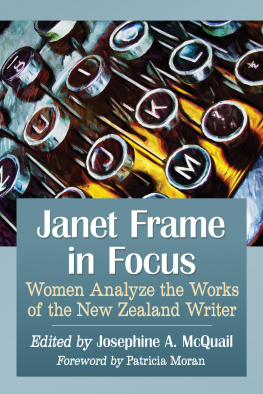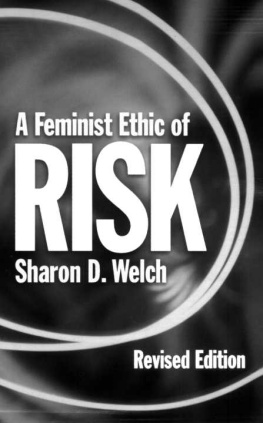Pursuing an Ethic of Empathy in Journalism
This book advances a journalistic theory of empathy, challenging long-held notions about how best to do journalism. Because the institution of journalism has typically equated empathy and compassion with bias, it has been slow to give the intelligence of the emotions a legitimate place in the reporting and writing process. Blank-Libras work locates the point at which the vast, multidisciplinary research on empathy intersects with the work of the journalist, revealing a reality that has always been so: journalists practice empathy as a way to connect but also as a form of inquiry, as sincere and legitimate in its goals and aspirations as is objectivity.
Janet D. Blank-Libra is Professor of English and journalism at Augustana University, Sioux Falls, South Dakota, where she teaches literature courses (fiction and nonfiction), photojournalism, ethics and law of the press, a variety of writing courses, and courses specific to the universitys honors program. She has twice received teaching awards and recently finished a three-year appointment as the recipient of an endowed chair that the university calls The Chair of Moral Values, a rather weighty title that allowed her to bring ethical issues to the attention of the community.
Routledge Research in Journalism
For a full list of titles in this series, please visit www.routledge.com.
8 Journalism and Eyewitness Images
Digital Media, Participation, and Conflict
Mette Mortensen
9 Foreign Correspondents and International Newsgathering
The Role of Fixers
Colleen Murrell
10 Social Media at BBC News
The Re-Making of Crisis Reporting
Valerie Belair-Gagnon
11 Audience Feedback in the News Media
Bill Reader
12 Mindful Journalism and News Ethics in the Digital Era
A Buddhist Approach
Edited by Shelton A. Gunaratne, Mark Pearson, and Sugath Senarath
13 Profile Pieces
Journalism and the Human Interest Bias
Edited by Sue Joseph and Richard Lane Keeble
14 Journalism and the Philosophy of Truth
Beyond Objectivity and Balance
Jesse Owen Hearns-Branaman
15 Democratizing Journalism through Mobile Media
The Mojo Revolution
Ivo Burum
16 News across Media
Production, Distribution, and Consumption
Edited by Jakob Linaa Jensen, Mette Mortensen, and Jacob rmen
17 Pursuing an Ethic of Empathy in Journalism
Janet D. Blank-Libra
First published 2017
by Routledge
711 Third Avenue, New York, NY 10017
and by Routledge
2 Park Square, Milton Park, Abingdon, Oxon OX14 4RN
Routledge is an imprint of the Taylor & Francis Group, an informa business
2017 Taylor & Francis
The right of Janet D. Blank-Libra to be identified as author of this work has been asserted by her in accordance with sections 77 and 78 of the Copyright, Designs and Patents Act 1988.
All rights reserved. No part of this book may be reprinted or reproduced or utilised in any form or by any electronic, mechanical, or other means, now known or hereafter invented, including photocopying and recording, or in any information storage or retrieval system, without permission in writing from the publishers.
Trademark notice: Product or corporate names may be trademarks or registered trademarks, and are used only for identification and explanation without intent to infringe.
Library of Congress Cataloging-in-Publication Data
Names: Blank-Libra, Janet D., author.
Title: Pursuing an ethic of empathy in journalism / by Janet D. Blank-Libra.
Description: New York: Routledge, 2016. | Series: Routledge research in journalism | Includes bibliographical references and index.
Identifiers: LCCN 2016005446
Subjects: LCSH: Journalistic ethics. | Empathy. | JournalismPhilosophy. | Mass mediaMoral and ethical aspects.
Classification: LCC PN4756 .B58 2016 | DDC 174/.907dc23
LC record available at https://lccn.loc.gov/2016005446
ISBN: 978-1-138-19443-4 (hbk)
ISBN: 978-1-315-63885-0 (ebk)
Typeset in Sabon
by codeMantra
To the empathetic journalists of the twenty-first century.
One day, a few years ago, I opened my e-mail to an intriguing message. It was from a professor at Augustana University in South Dakota named Janet Blank-Libra. She was planning to write a book about journalism and compassion. And, yesshe understood that simply putting those two words together could cause discomfort:
I know, of course, that not everyone agrees that journalists should work out of an empathetic or compassionate approachespecially not deliberately. The responses of fellow teachers, scholars and professional writers to my work have run the gamut. Some believe I am pursuing a worthy topic, some think empathy/compassion cannot be taught, and some think the conversation I am broaching is not one journalists should entertain. Ive wondered myself if Im spending my time wisely, but in the end this topic is one to which I am committed, so I have simply kept on with it because I must.
As it happens, I well understood why Blank-Libra would feel that the topic should command such passionate devotion.
Id been thinking about the ill effects on journalism of our fealty to objectivityor, to be clearer, the way we have been construing objectivity. An often discussed example is that our commitment to evenhandedness can lead to a false equivalence, as in coverage of the science of global climate change.
But there are other problems, as well. Id seen the impact of years of political reporting that was, as one Washington editor put it, written as if with a sneer on its face. (When I was ombudsman at the Washington Post, one reader wrote me to ask, Can you just give us the news? I can supply the cynicism.)
Id heard reporters in the Post newsroom express astonishment that I was actually listening to the complaining readers. And one news executive asked me exactly what I meant, when I said it was our responsibility as journalists to think about the impact of our work on our community.
I knew that the persisting stereotypes that keep us from understanding one another as fellow citizens are enabled, even nourished, by our failure as journalists to reflect on the ways in which our own prejudgments shape our work.
And I knew that a dirty little secret among journalists is that we dont like to have journalism done to usthat we are even hesitant to speak to our brethren in the press. Its all too clear when someone is coming at you determined to elicit a particular quote, no matter what it is you are trying to say. (Come to think of it, the terrific information in this book on how to listen is itself sufficient reason to hope that it gets into every journalism classroom.)
So, when Janet called me at my office in L.A., I offered encouragement, attempted some helpful advice, and hung up hoping against hope that shed make the book happen.
Well, she did. And here it is, just when politics are feeding our foulest notions of one another and stoking our worst fears. Just when empathy is very much in need of a champion, Janet Blank-Libra has given us this thoughtful, engaging, and deeply researched book.
As she tells us,
There is danger in the journalists belief that setting aside his or her emotions is the equivalent of setting aside biases, because bias and emotion are not the same things. The objective journalist learns to be fair-minded. The empathetic, compassionate journalist does the same. Both approaches should be embedded in a story that is multiperspectival, informative, and accurate.


